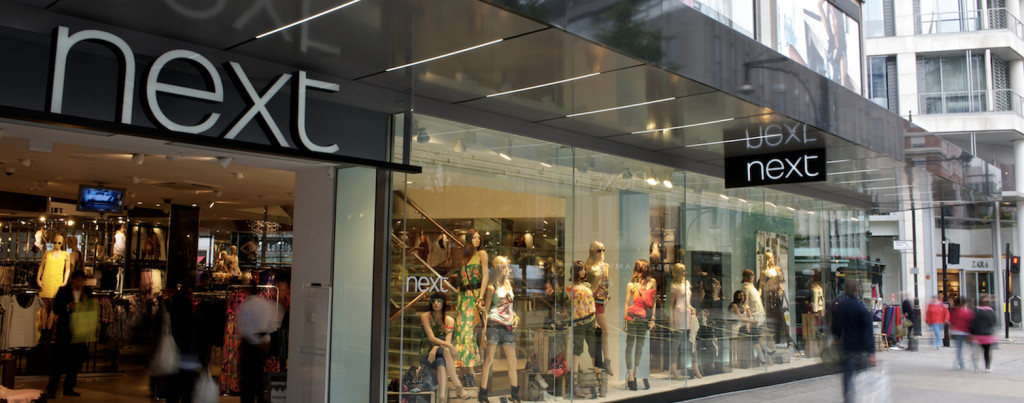Clothing retailer Next (NXT) fell 1.7% to £47.04 on Wednesday as the high street bellwether posted a 41% first quarter sales slump, suspended dividends and cancelled its share buyback to conserve cash during the coronavirus pandemic.
Alarmingly, the quarterly sales dive was even steeper than management feared at the time of Next’s March stress test, although the retailer believes that even in its worst sales scenario, it can operate comfortably within its cash resources and will end the year with less net financial debt than at the end of last year.
FASTER AND STEEPER
‘It is not an understatement to refer to this update as one of historic proportions in the magnitude of the downturn in activity and the expectations that the company sets out for the remainder of calendar year 2020,’ commented Shore Capital this morning.
The broker added that the first quarter update ‘highlights the brutal damage that the coronavirus crisis has inflicted upon current trade as well as its hangover through a prolonged bloated supply chain’.
For the 13 weeks to 25 April, total Next brand full price product sales were down 41% year-on-year, with retail sales down 52% and online sales down 32%, so seismic slumps indeed.
The second half of the quarter reflected the closure of both Next’s brick and mortar outlets and online operations, the latter temporarily suspended then resumed since 14 April in limited fashion.
This downwards lurch in sales has been faster and steeper than Next anticipated at the time of the full year results. And chief executive Simon Wolfson is now modelling lower sales for both the first and second halves of the year to January 2021.
Next now believes the effects of COVID-19 will be felt for longer than first anticipated leading to stress tests for total sales to fall between 30% and 40% for the year to end January 2021.
LIQUIDITY BOOST
Next’s dividend suspension comes alongside other steps to boost liquidity including the sale and leaseback of warehouses and its head office.
The retailer has also received agreements to waive the covenant tests on its Revolving Credit Facilities (RCF) until January 2021 and is also eligible to draw on the Bank of England’s Covid Corporate Financing Facility (CCFF), although it assured that under present scenario planning it would not need to do so.
Next also stated that if sales were lower than the worst case scenario, namely a 40% reduction, then it would still have significant cash resources to draw upon.
RAG TRADE READ ACROSS
Shore Capital continued: ‘If Next has been a little too optimistic about the impact of the lockdown upon its business, well what of the rest of the retail trade? We consider Lord Wolfson to be one of the more informed, astute and savvy operators in the UK retail scene.
'The outlook for the business though is very challenging, probably setting expectations in a sensible place to rebuild, but noteworthy and concerning, nonetheless.
‘The shadow of coronavirus will be manifested on the group’s balance sheet, earnings and dividend flows for some time to come.’
Russ Mould, investment director at AJ Bell, commented: ‘What happens when you prepare for a full force gale and get hit by a hurricane instead? Retail champion Next is finding out.
'A few short weeks after it outlined its ability to withstand £1bn of lost sales and it has had to ratchet up substantially the impact on the business from the coronavirus crisis.
‘The company is adjusting to the new normal with its phased restart of online operations and initial plans to reopen larger out-of-town stores first where introducing social distancing measures will be easier.’




